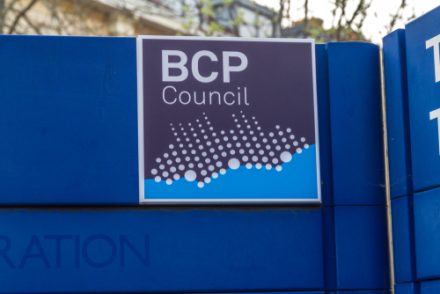
BCP Council proposing selected licensing for private rentals to improve housing standards
30th January 2020 by BCP Council proposing selected licensing for private rentals to improve housing standards
BCP Council is proposing to introduce selective licensing into certain areas of Bournemouth and Poole. While this scheme will primarily affect landlords and their tenants, it may affect many others living or working in the affected areas.
What does selective licensing involve?
Generally speaking, there is no obligation for private landlords to license their properties for rental.
Should the selective licensing scheme be approved, however, all privately rented properties within the areas will need to be licensed. This means that all private landlords will need to apply for a licence for their property, regardless of the number of tenants or size of the premises.
As part of the licensing procedure, BCP council plans to introduce certain conditions with which private landlords must comply to be granted a licence. It is proposed that certain conditions will be mandatory, while others may apply only to certain properties.
Where may be affected?
The potentially affected areas are within Boscombe East, Boscombe West, East Cliff & Springbourne, Southbourne, Winton, Charminster, Westbourne & Westcliff and Poole Town Centre.
Why is this being proposed?
BCP council is concerned about anti-social behaviour and standards of housing. The council believes that introducing selective licensing to these areas will help social and economic conditions, and reduce health inequalities.
What do the conditions involve?
The majority of the conditions are not surprising or extraordinary, and relate to safety features such as gas and electricity supply or smoke / carbon monoxide alarms. Landlords are already expected to comply with many of these. Some conditions are to be mandatory and apply to all licences, while others may apply to certain properties only.
Landlords may be obligated to provide a statement of terms to the tenant at the beginning of the tenancy. For the majority of landlords, this is unlikely to be onerous, as it is usually desirable to have a written tenancy agreement in any case.
One of the more controversial proposed mandatory licensing conditions is that certain landlords may be obligated to require tenants to provide references. The landlord will then be prohibited from letting to tenants who cannot provide references. Further, the landlord will be subject to checks by the council and be forced to provide evidence of carrying out the request for references.
Some potential non-mandatory conditions include having a complaints procedure and providing a rent book and registering any deposit with a deposit scheme. This last requirement will not pose too much of an imposition on landlords, who will likely be aware that failure to do so would prevent service of a Section 21 Notice.
The council’s focus on anti-social behaviour appears to be behind the suggestion of including a potential condition whereby tenants in problem areas would be required to disclose unspent criminal records. The landlord would then need to consider whether these convictions would indicate anti-social behaviour.
Are there any costs involved?
It will not come as a surprise to many landlords that there will be a charge for a licence. However, part of the proposal states that any charges made to landlords can go no further than covering the costs of the scheme. Therefore, licences should be relatively inexpensive, with the council estimating no more than £330 per property for a five year licence.
And penalties?
Of course. Failure to apply for a licence or to comply with a licence condition, would be a criminal offence. This would also be punishable by a fine, which would be potentially unlimited.
Further penalties could involve an order to repay the rent to the tenant for any period during which the property was unlicensed and should have been. The council will have the power to make interim and final management orders, meaning that the council may effectively step in and take over management of the property in place of the landlord. This can go as far as creating new tenancies and even potentially selling the property.
As will be entirely predictable to letting agents and landlords, a landlord will be prevented from serving a Section 21 Notice in an unlicensed property.
Are there any recognised risks?
The Council acknowledges that there are certain risks involved in this scheme. These are identified as ranging from low to serious.
There is an accepted risk that the cost of a licence will be passed onto tenants and thereby increase rents. The council believes that, as this should be no more than £110 for an entire house, this should increase rent by less than £10 per month.
A number of challenging risks arise regarding mandatory references. One is a suggestion that problem tenants will simply move to a neighbouring area which is not subject to licensing. Further, it is a concern that vulnerable individuals without references will be unable to find housing. Nonetheless, the council considers that this a low risk.
When will a decision be reached?
The consultation period is scheduled to run from 13 January until 6 April 2020. Potentially affected people are able to submit their comments before the end of the consultation. The Council is also running drop-in sessions where anyone may attend to ask questions about the scheme.
Once the consultation period has been completed, a report will be presented to the Council’s Cabinet. A decision on whether to implement the scheme will follow.
Laceys Solicitors provides specialist services in landlord and tenant law. If you would like any further advice on your obligations or rights, on disputes or drafting of rental agreements, please contact our landlord and tenant department on 01202 755204 or b.sims@laceyssolicitors.co.uk who will be happy to help.
A link to the full consultation document can be found here: https://live-bcpcouncil-bournemouth.cloud.contensis.com/Council-and-Democratic/Consultation-And-Research/Discretionary-Licensing/DL-docs/Full-Consultation-Document.pdf.
A link to the summary can be found here: https://live-bcpcouncil-bournemouth.cloud.contensis.com/Council-and-Democratic/Consultation-And-Research/Discretionary-Licensing/DL-docs/Selective-Licensing-Summary-Document.pdf
